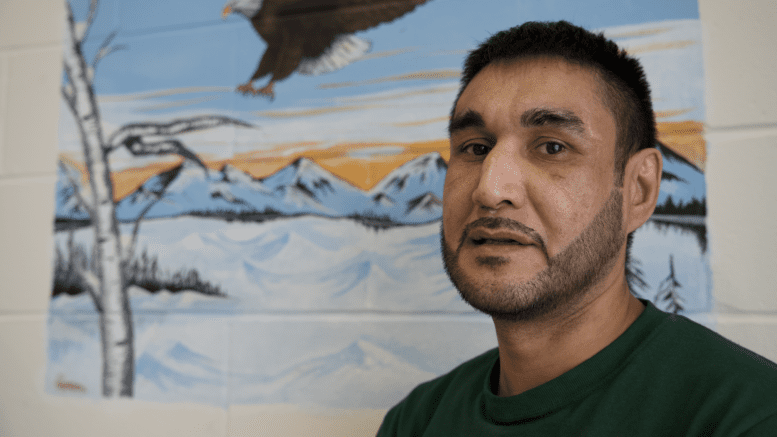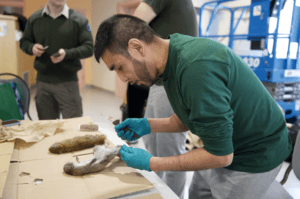For the first time in over 20 years, Denver Clement had the opportunity to reconnect to his roots through a pilot trapper program at the North Slave Correctional Complex in Yellowknife.
“I miss just being out on the land because I grew up out there,” he says. “Once I get out there, I just feel like I can do anything.”
Clement is 35 years old, originally from Tulita, and has been in jail since Feb. 1.
An average day in jail includes a lot of sleeping, eating, playing cards and watching some bad television. Clement has spent much time in and out of jail and says cultural experiences like this don’t come around often.
“I’d rather think about being out and doing things like this than [be] cooped up sitting in a pod,” he says.
The program is a six-week course built to teach inmates how to trap and skin an animal in the hopes of re-integrating them into their community with a profitable skill.
The first day of the program introduced skinning squirrels.
As a young man, Clement says he was taught these traditional skills by his grandmother.
“I’ve seen these things done and I don’t need no instructions,” chuckles Clement.
Among the other participants, Clement is confident and shows great tenacity. Sharing techniques on how to skin the animal comes naturally to him, he says. “I’m glad that I still can do this.”
Clement is looking forward to being released and bringing these skills back with him.
“I just want to go back to the land,” he says, “I’m gonna get the trapping thing done. I know I am.”
Bringing back memories
“A lot of inmates trapped with their parents and so it brings back some good memories for them,” says Carl Williams.
Williams is the lead educator for the program and has been hunting and trapping for over 60 years.
“The inmates seem to be more relaxed and enjoying it more than when we first started,” he says. During the early stages of the program, gauging interest was difficult.
This time,”everybody jumped in and grabbed the squirrel, it was kind of fun, showing them a little bit of stuff.”
Participants will also build shelters, work with chainsaws and learn more about the Genuine Mackenzie Valley Fur program to help enhance their access to the trade and keep them up-to-date on the rules.
“If you don’t go by auction rules, you’re not going to get nearly as much money per pelt,” says Williams. “You have to do things a lot better than we used to.”
One of the bigger challenges for Williams is not being able to take the inmates beyond the prison walls and show them practical skills and actually be on the land.
“To take the inmates out for a day and show them how to set traps out in the bush. Maybe go back the next day and check rabbit snares,” he says. “It’s pretty difficult in a jail to be doing stuff like that.”









